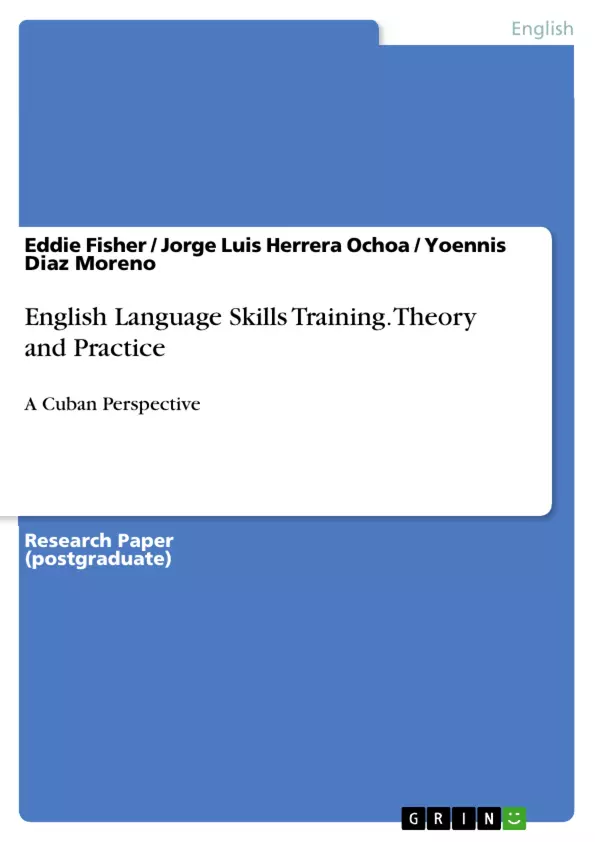The ability to teach foreign languages effectively has become an increasingly important skill to develop and improve the language proficiency of students. Teachers need to develop and apply proactive and positive attitudes to foster new levels of foreign language learning within their students. Teaching, on its own, is not a panacea for success. This paper investigates how teachers at the Universidad de Oriente (UO) in Santiago de Cuba search for and apply innovative ways of teaching foreign languages to their students within current boundaries.
The results from this research show that there is a positive relationship between the level of proficiency in a foreign language and the methods and approaches teachers apply to keep students motivated and interested in the subject matter. The literature review from this study provided supportive evidence which was strengthened with insights from face to face interviews and a focus group meeting. The outcomes confirmed that students, who are exposed regularly to practical and diverse teaching methods, are more likely to exceed the expected foreign language proficiency levels set by the University’s quality standards.
Inhaltsverzeichnis (Table of Contents)
- Introduction
- Introduction
- Literature Review
- Main Research Questions/Hypotheses
- Research Methodology
- Method
- Data Collection, Interpretation and Triangulation
- Results
- Face to Face Interviews
- Focus Group Meeting
- Discussion
- Conclusions
Zielsetzung und Themenschwerpunkte (Objectives and Key Themes)
This research aims to investigate the relationship between the attitudes, behaviors, and teaching competencies of foreign language teachers at the Universidad de Oriente (UO) in Santiago de Cuba, and the impact of these factors on student language proficiency. The study explores how teachers' proactive and forward-thinking teaching approaches contribute to student success in foreign language learning.
- The importance of positive attitudes and proactive teaching approaches in foreign language education
- The role of effective communication and language skills in contemporary society
- The impact of diverse and engaging teaching methods on student motivation and proficiency
- The benefits of integrating practical language skills into subject-specific content learning (CLIL)
- The relationship between language teaching and psychology in fostering language acquisition
Zusammenfassung der Kapitel (Chapter Summaries)
The introduction provides a context for the study, highlighting the increasing importance of foreign language proficiency in both personal and professional life. It emphasizes the significance of effective language teaching and the challenges faced by teachers in adapting to new approaches and technologies.
The literature review explores the intersection of language learning and psychology, drawing on perspectives from various scholars. It discusses the need for language teachers to understand the cognitive processes involved in language acquisition and to implement teaching strategies that foster both communicative competence and critical thinking in the target language.
Schlüsselwörter (Keywords)
The primary keywords and focus topics of this study include English language teaching, Content and Language Integrated Learning (CLIL), communication, psychology, language teachers, language proficiency, and teaching methodologies.
Frequently Asked Questions
How does teacher attitude affect language learning?
Proactive and positive attitudes in teachers foster higher levels of motivation and interest among students, directly impacting their language proficiency.
What is CLIL in language teaching?
CLIL stands for Content and Language Integrated Learning, a method where subjects are taught in a foreign language to improve practical language skills.
What methods keep students motivated in foreign language classes?
Diverse and practical teaching methods, such as interactive communication and psychological support, are confirmed to exceed standard proficiency levels.
Why is psychology relevant to language teaching?
Understanding cognitive processes and the emotional state of learners helps teachers implement strategies that foster better language acquisition.
What were the findings of the research at UO Santiago de Cuba?
The research confirmed that students exposed to innovative and diverse teaching methods are more likely to surpass university quality standards for proficiency.
- Citar trabajo
- Prof Dr Eddie Fisher (Autor), Jorge Luis Herrera Ochoa (Autor), Yoennis Diaz Moreno (Autor), 2013, English Language Skills Training. Theory and Practice, Múnich, GRIN Verlag, https://www.grin.com/document/267446



